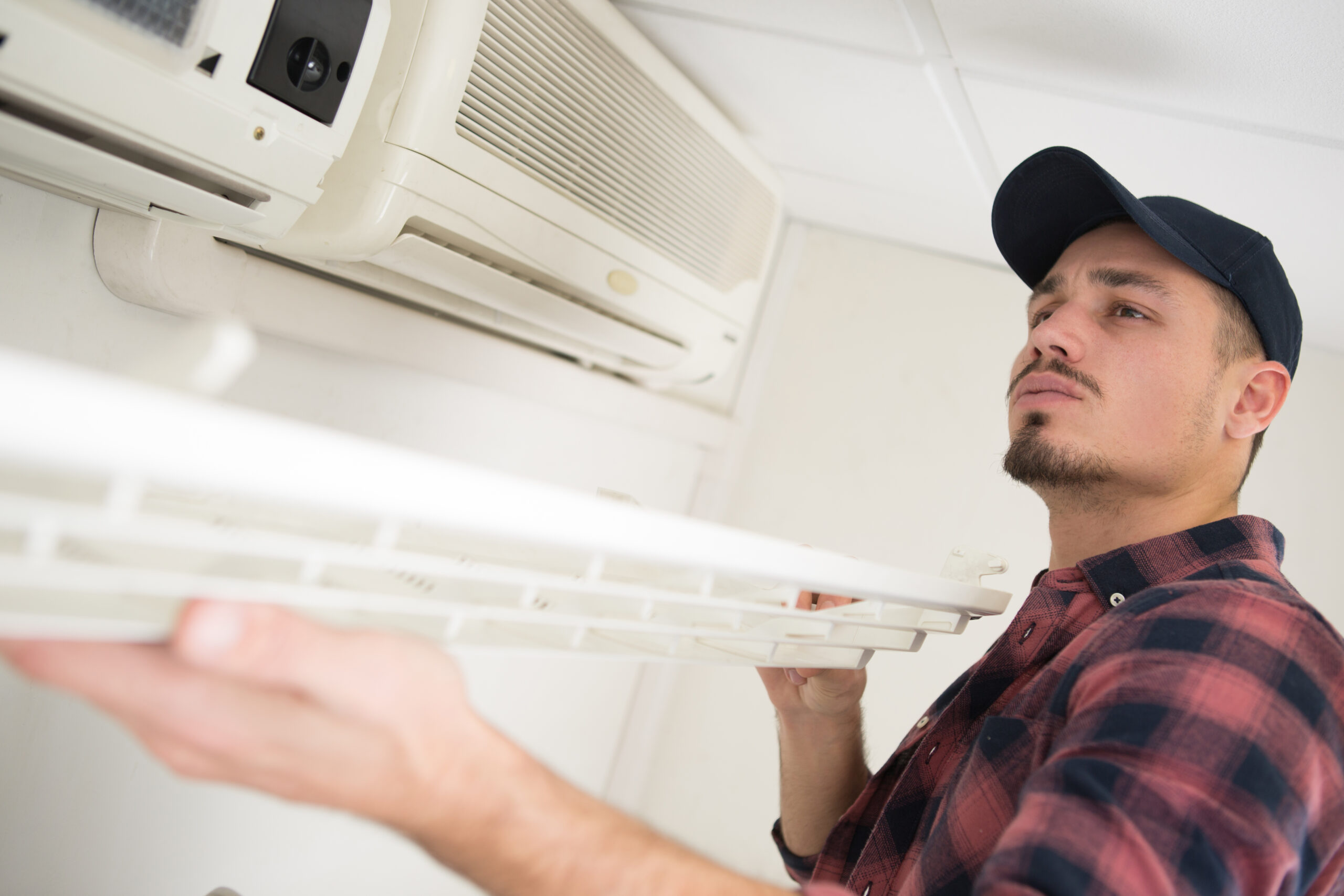Recent
- DIY Winter Fixes vs Calling a Professional HVAC Company February 4, 2026
- How Freezing Temperatures Affect Your HVAC System (And What You Should Do) January 7, 2026
- How to Winterize Your Home This Season December 2, 2025
July 1, 2025

Your air conditioning is a blessing in the sweltering heat of summer, offering you an escape into a cooler climate when spending time outdoors. But is your AC spreading mold? If you suspect that your unit has mold in it, not only can it affect the system, but it can also lead to health complications if not addressed and corrected quickly.
At Tindall & Ranson, we’re here to help you determine if your AC is spreading mold and what you should do if it is.
Mold tends to thrive in environments that are damp, dark, and warm. Your air conditioning unit tends to create all three—making it a perfect place for mold to grow. Your air conditioner creates condensation that spreads through its ducts, and with the addition of dust, can potentially harbor mold if not cleaned and regularly maintained.
There are plenty of ways that you can tell if there’s mold in your AC unit, so it’s important to take notice of the signs so you can plan to have the issue corrected. Here’s what to look out for:
If you notice the smell of mold when your AC unit turns on, it could mean that you have mold growing inside the ducts or evaporator cooler, which can release mold spores through your vents.
If you or your family are starting to experience the symptoms of allergies (coughing, sneezing, watery eyes), specifically while indoors, it could be an indication of mold growth and spores spreading through your home.
Be mindful of any leaks coming from your AC unit. It could be an issue with the system itself, or a sign of excess moisture which can exacerbate the growth of mold.
While mold can be detected with most of your senses, seeing it is a strong red flag that you shouldn’t ignore. Look around your AC unit and your vents to see if you can see mold starting to sprout.
When you have mold growing in your ducts, it can hinder the effectiveness of your AC unit. Not only can it restrict the airflow, but it can lead to uneven cooling of your home.
If mold is growing in your AC unit, it’s important to stop it from spreading before it leads to further damage and even health issues with your family. It’s important to contact a heating and cooling expert to identify the issue and clean the ducts and replace any components if necessary.
Preventative measures like regular maintenance and cleaning and even employing a dehumidifier can help you avoid the risk of mold growth.
If you noticed any of the signs that your air conditioning unit is growing and spreading mold, it’s important to alleviate the issue as soon as possible. Get in touch with us at Tindall & Ranson so our expert technicians can effectively remove the mold so your cool air can flow freely.
Blog Posts
Enter your email address
Below to receive updates
And special offers!
Submit your questions about home performance and maintenance to your plumbing, heating and cooling systems for our monthly Ask Kevin article!
NJ PLUMBING LIC #8859
NJ HVAC-R LIC #9540
NJ CONTRACTOR REG #13VH01545000